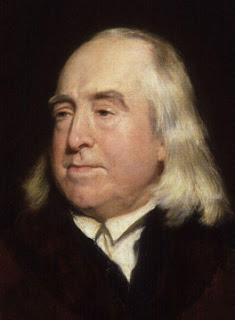1. Absolute and Deontological
Enables people to establish a structured and official base in which to structure both their moral decision making and, on a larger scale, communities. In a relativistic era suffering from lack of definitive stability this absolutist approach may be attractive.
2. Universatility
Aquinas's view of PRACTICAL REASON and the idea that humans all maintain a common nature and morality allows natural law to be universally accepted. It is true that all cultures maintain the same basic principles i.e. continuation of the species and therefore promotes a sense of equality also.
3. A REASON to be moral
Natural law provides a concrete reason to BE moral and a firm basis from which to refuse to step over moral boundaries - i.e. to fulfill our destiny of a fellowship with God. It is furthermore a way of life rather than a set of guidelines and gives step by step advice on what it is to be human.
4. Based on Human Nature
Gerard J. Hughes suggests in his book "Christian Ethics: An introduction" (1998) that Natural Law is intimately in tune with human nature and by focusing on following conscience and practical reason allows a margin for error as long as intentions were to follow good.
WEAKNESSES OF NATURAL LAW:
1. Is there a common Human Nature?
Some have challenged Aquinas' belief in a fundamental principle that encompasses all human beings and that which contributes to our human nature. Kai Nielson states
"Concept of human nature is a rather vague cultural concept, not a scientific one."Arguably this human nature is not as self-evident as Aquinas believed. For example different culture's idea of morality are in direct opposition - - Eskimos for example kill off those who they believe will not survive the winter, whilst maintaining supposedly good intentions this is a fundamental violation of the continuation of the species precept.
- Homosexuals & Bisexuals are still human but their sexuality does not lead to reproduction and therefore Aquinas condemns this. Stating they have no purpose. = ARGUABLY NO COMMON HUMAN NATURE OR AT LEAST ONE MORE COMPLEX THAN AQUINAS ANTICIPATED
2. Is Natural Law Holistic?
In his work "The Puzzle of Ethics" (1994) Paul Vardy challenged the way Aquinas insistently links general principles to lesser purpose. For example does sex ALWAYS have to end in reproduction? Are other sex acts immoral? Indeed the pleasure of love-making may actually benefit a couple's relationship making reproduction in the future more likely. As Aquinas condemns such acts he is UNHOLISTIC as he only sees the bigger picture not the details. For example, science has shown the reproductive parts to be adapted for pleasure as well as reproduction. Aquinas is merely SIMPLISTIC.
3. Do Natural Law & Religion mix?
Whilst Natural Law claims to be a Christian ethic Jesus indeed opposed a LEGALISTIC approach to ethics in the New Testament as Joseph Fletcher argues with his interpretation of Jesus' ethics "Situation Ethics". As christianity is based on the teachings of Jesus and NL supposedly based on christianity such contradictions decrease its viability as a theory.
- John Finnis' Natural Law Theory may however provide a more accessible approach as although from a Catholic perspective the 7 Basic Goods may be accepted by even Atheists. However one of the "goods" of life is proposed to be reproduction, and many people are left infertile for their entire lives - are they therefore leading a less moral life?
4. Is Natural Law as rigid as it seems?
Aquinas observed as although the primary precepts remained UNCHANGEABLE the secondary precepts would need some flexibility for certain circumstances. Such flexibility however undermined the ABSOLUTISM of the theory that has proved to be a strength. Without the absolute guidelines to establish what is good/bad N.L may arguably invite the possibility of SITUATIONISM.







